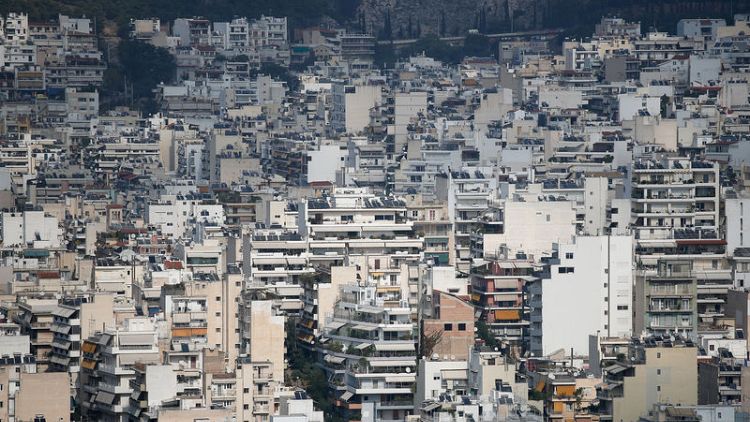By George Georgiopoulos
ATHENS (Reuters) - A recovery in Greece's housing market gained momentum in the last quarter of 2018, central bank data showed, suggesting that a recovering economy and growing foreign interest might lift property prices further.
Property accounts for a large chunk of household wealth in Greece, which has one of the highest home ownership rates in Europe at 80 percent, versus a European Union average of 70 percent, according to the European Mortgage Federation.
Apartment prices rose 2.5 percent in the fourth quarter compared with the same period in 2017, Bank of Greece data showed, with the recovery accelerating from a downwardly revised 2.1 percent increase in the third quarter of last year.
More specifically, prices rose by 4.2 percent year-on-year in Athens, where home-sharing platforms like Airbnb and a "golden visa" programme - a renewable five-year resident's permit in return for a 250,000-euro (216,664.1 pounds) investment in real estate - have grown very popular.
Prices had slid 1.0 percent in 2017 from a year earlier, taking the cumulative fall since 2008, when the country's protracted recession began, to 42 percent.
"It (new data) is a further confirmation of the uptrend in market prices, with Athens starring after an increase of 4.2 percent," National Bank economist Nikos Magginas said Tuesday.
"It's the result of rising demand and a shrinking stock of available-for-sale residential real estate."
A projected rise in real disposable income of about 2 percent this year, coupled with improving economic sentiment and nascent signs of a pick-up in demand for mortgage credit, should further boost real estate prices in 2019, Magginas said.
Greece's market has been dampened by property taxes imposed to plug budget deficits, tight bank lending and a jobless rate still around 18.5 percent, the highest in the 19-nation euro zone.
But economic prospects have improved since 2015 when Greece signed up to a third bailout package worth up to 86 billion euros. The over-extended country emerged from its latest bailout in August last year and is now relying on markets to cover its financial needs.
Greece's 180 billion euro economy expanded for a ninth straight quarter in July to September last year, and at a faster pace than the quarter before, mainly driven by stronger consumer spending.
(Reporting by George Georgiopoulos; Editing by Mark Heinrich)



